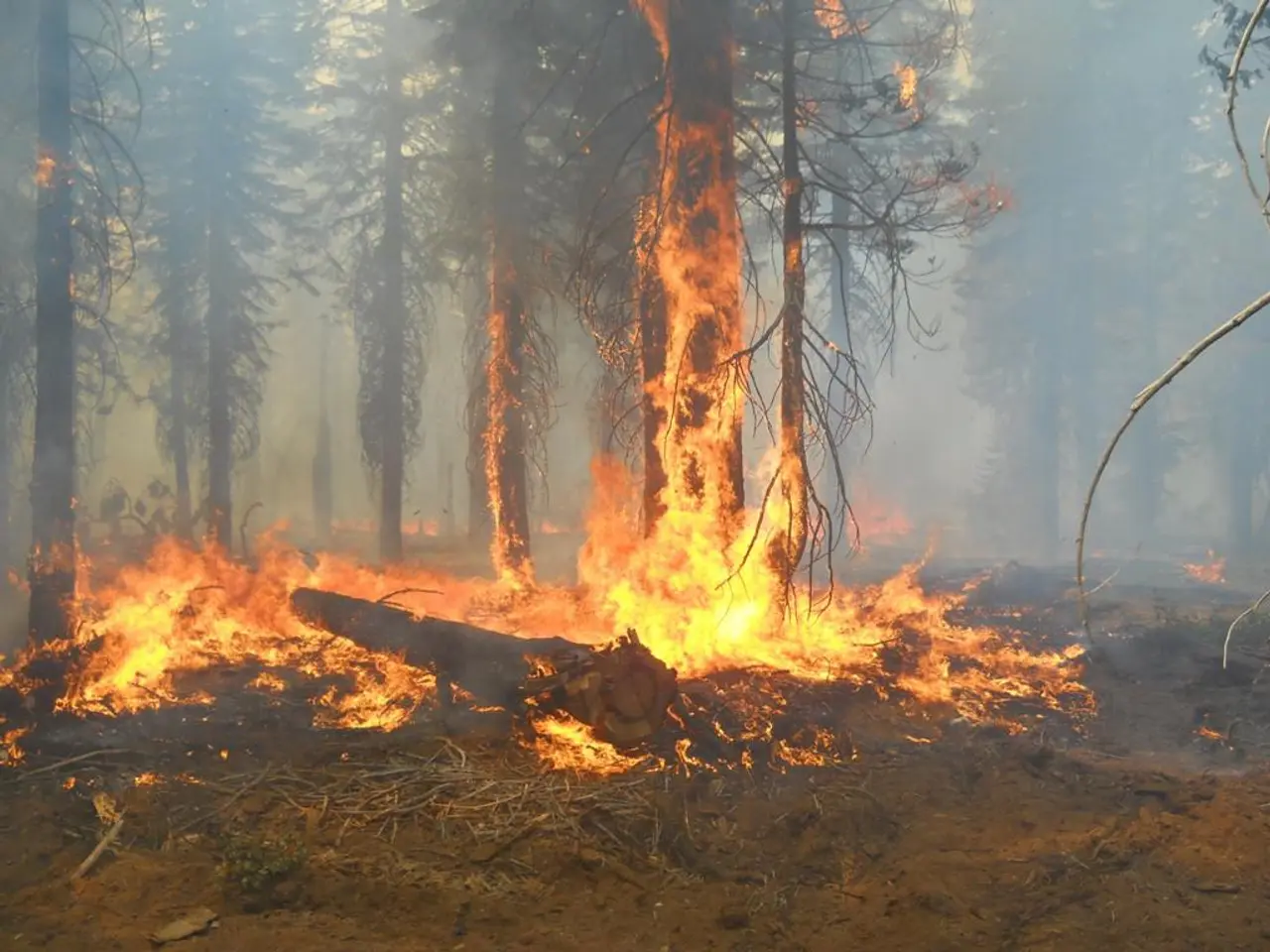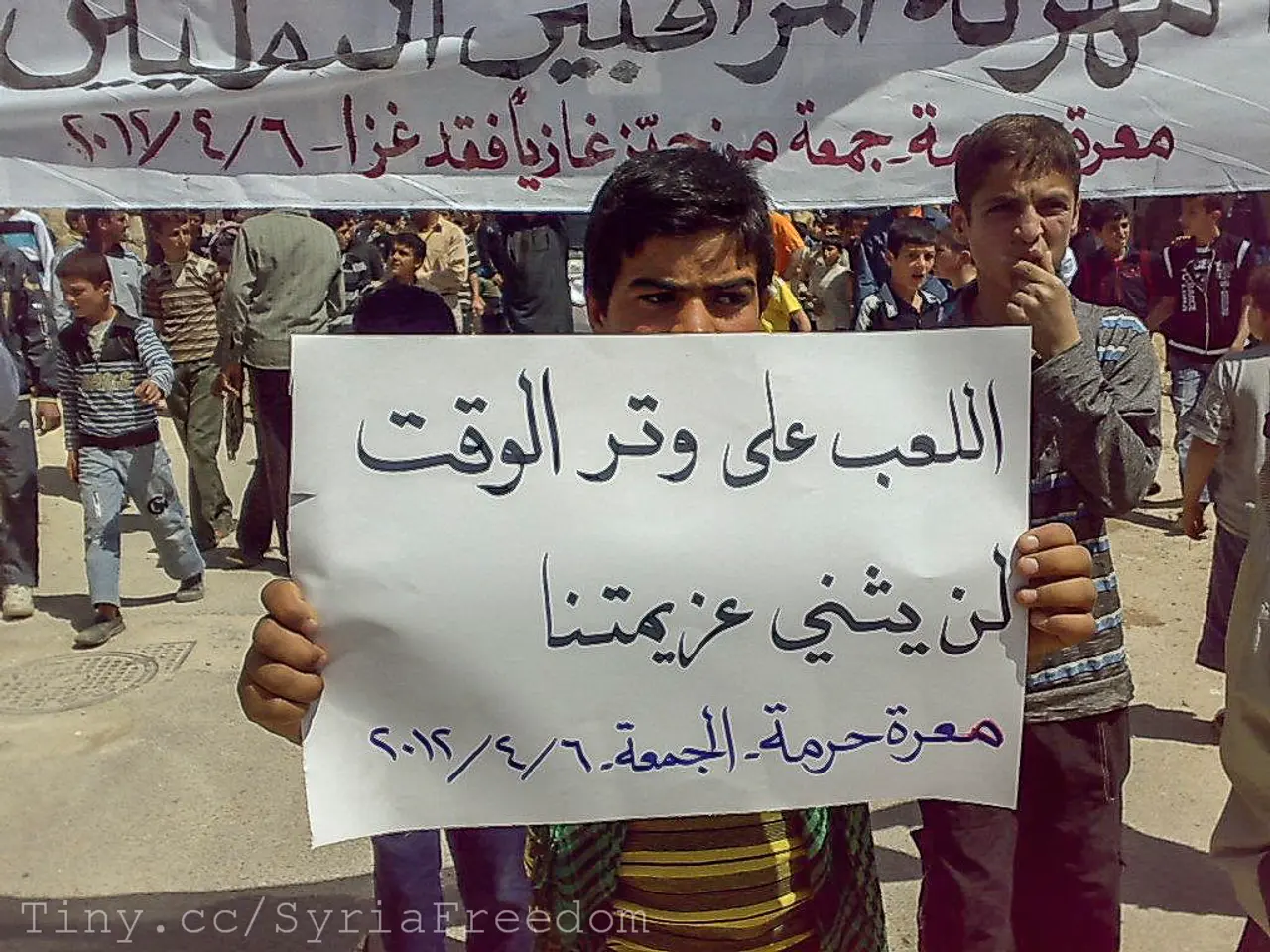Southern Europe and Turkey experience a decrease in the intensity of fires, yet temperatures continue to climb
In the sweltering heat of summer, wildfires have become a formidable challenge for firefighters in southern Europe and Turkey. A combination of adverse weather conditions, human-induced ignitions, and natural events have contributed to the spread and difficulty of controlling these blazes.
High temperatures, intense heat, and strong winds create a tinderbox-like environment, allowing fires to ignite easily and spread rapidly. This is particularly true in regions like Antalya, Turkey, where extreme heat and intense winds have caused fires to encroach upon residential neighbourhoods, increasing risk and complicating firefighting efforts [1]. Such weather factors also dry out vegetation and soils, providing ample fuel for fires to consume rapidly [4].
Arson, or human-caused fires, further exacerbate wildfire risks. Intentional fire-setting and other human activities have been linked to increased wildfire occurrences and spread, especially in regions with weak control or conflict-related instability [3][4]. Natural events such as lightning strikes serve as ignition sources but are less influenced by human factors than arson.
Climate change also intensifies weather conditions conducive to wildfires by increasing temperatures, extending dry periods, and lengthening fire seasons, thereby making forests more vulnerable to fire outbreaks and harder to manage [3][4]. This trend is observed not only in southern Europe and Turkey but also in neighbouring regions, increasing the overall hazard and complexity of fire control.
Despite these challenges, progress has been made in containing some of the fires. For instance, a second large fire near the Portuguese town of Arouca has been brought under control, and the second major forest fire in Spain, in Las Hurdes in the region of Cáceres, has also been contained [2]. Similarly, fires in Cuevas del Valle, south of Ávila in Spain, were almost completely extinguished due to unexpected rain [5].
However, the situation remains tense in other areas. In Italy, over 3,700 fires were registered between May and late July, particularly affecting Sicily [6]. The Greek fire service is on high alert due to expected windy conditions in some places in the coming days [7]. Forest fires in Turkey have largely been contained as of Saturday, according to Anadolu state news agency, but the situation remains critical, with over 2,000 forest fires breaking out in the country so far this year [8].
Sadly, the human toll of these fires is not insignificant. At least 14 people, including firefighters, have died in the forest fires in Turkey this year [9]. The forest fire risk remains extremely high in southern parts of Euboea, eastern Crete, and the region around Athens in Greece, with temperatures expected to soar over 40 degrees Celsius and dry winds expected in the coming days [10].
Elisio Oliveira, head of civil protection in Portugal, warned of unfavorable weather conditions, stating that the fire near Ponte da Barca is almost under control but remains a significant concern due to these upcoming weather conditions [11].
As the battle against these wildfires continues, the resilience and determination of firefighters remain crucial in protecting lives and properties in southern Europe and Turkey.
- The interplay of science, climate change, and weather patterns contributes significantly to the intensification of wildfire risks in environmental-science studies.
- In general-news reports, there have been numerous incidents of arson and accidents, further fueling the wildfires and creating environmental hazards.
- Climate-change factors such as increased temperatures, longer dry periods, and extended fire seasons make weather forecasting difficult and add complexity to controlling fires.
- Fires, whether caused by natural events like lightning or human activities like arson, have led to a series of weather-related accidents, including fires that encroached upon residential neighbourhoods.
- As fires continue to ravage southern Europe and Turkey, the impact on the environment and human lives, including crime-and-justice issues like arson, is receiving widespread attention in the general news.








